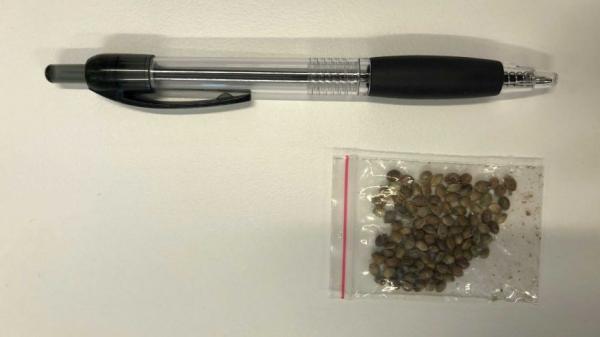
By Mitchell Clarke
An Officer woman has urged the community to be vigilant after she received “potentially suspicious” seeds in the mail.
On two separate occasions, Arcadia Estate resident Shoheli Sunjida received mysterious seeds at her door step, which were concealed in “heavily secured packaging” from Taiwan and Malaysia.
Ms Sunjida said she was “shocked” to receive the parcels and was concerned that the sender had obtained her address.
“I know the orders that I have placed online and this nothing like what I have ordered,” she explained.
Ms Sunjida threw the seeds in the bin as a precaution in case they had been delivered with a sinister intention.
“I knew that if I planted those seeds they could be potentially harmful to people’s health, or our agriculture and the economy,” she explained.
“There could be a group causing harm by targeting Australia’s agriculture.”
Federal La Trobe MP and assistant Customs Minister Jason Wood said while a seed might appear to be harmless, it should be treated as “potentially suspicious”.
“If something arrives to your door, especially something like a plant or seed, it’s important to never plant it … that could be the worst thing to do,” he said.
“If something unsolicited appears in the mail, warning flags must go up because the worst case scenario here is that it could affect our producers and their crops.”
A Department of Agriculture spokesperson said they were investigating 46 confirmed reports of unsolicited seeds arriving in Australia over the past five weeks, with seven destined for Victorian addresses.
The seed packets were predominantly sent in the mail and had arrived from China, Malaysia, Taiwan, Uzbekistan and Pakistan.
“All packets of seeds were unidentifiable, however, investigations and identification of the seeds is ongoing,” the spokesperson said.
“Seeds that do not meet Australia’s biosecurity import conditions can pose a significant threat. They could be an exotic, noxious or invasive species, or be carrying harmful plant pathogens.”
According to the Department, some seeds can carry the cucumber green mottle mosaic virus or the tomato brown rugose fruit virus. If the latter virus became established in Australia, it could threaten an industry worth $827 million annually.
But the Department said the unsolicited seeds might have been sent as part of an e-commerce practice called brushing.
Brushing is often used by a vendor to bolster orders and ratings, to increase their visibility online by sending goods like seeds, which are light and cheap, through the mail.
Anyone who receives unsolicited seeds in the mail is urged to secure the seeds and immediately report the incident to the dedicated hotline on 1800 798 636.






